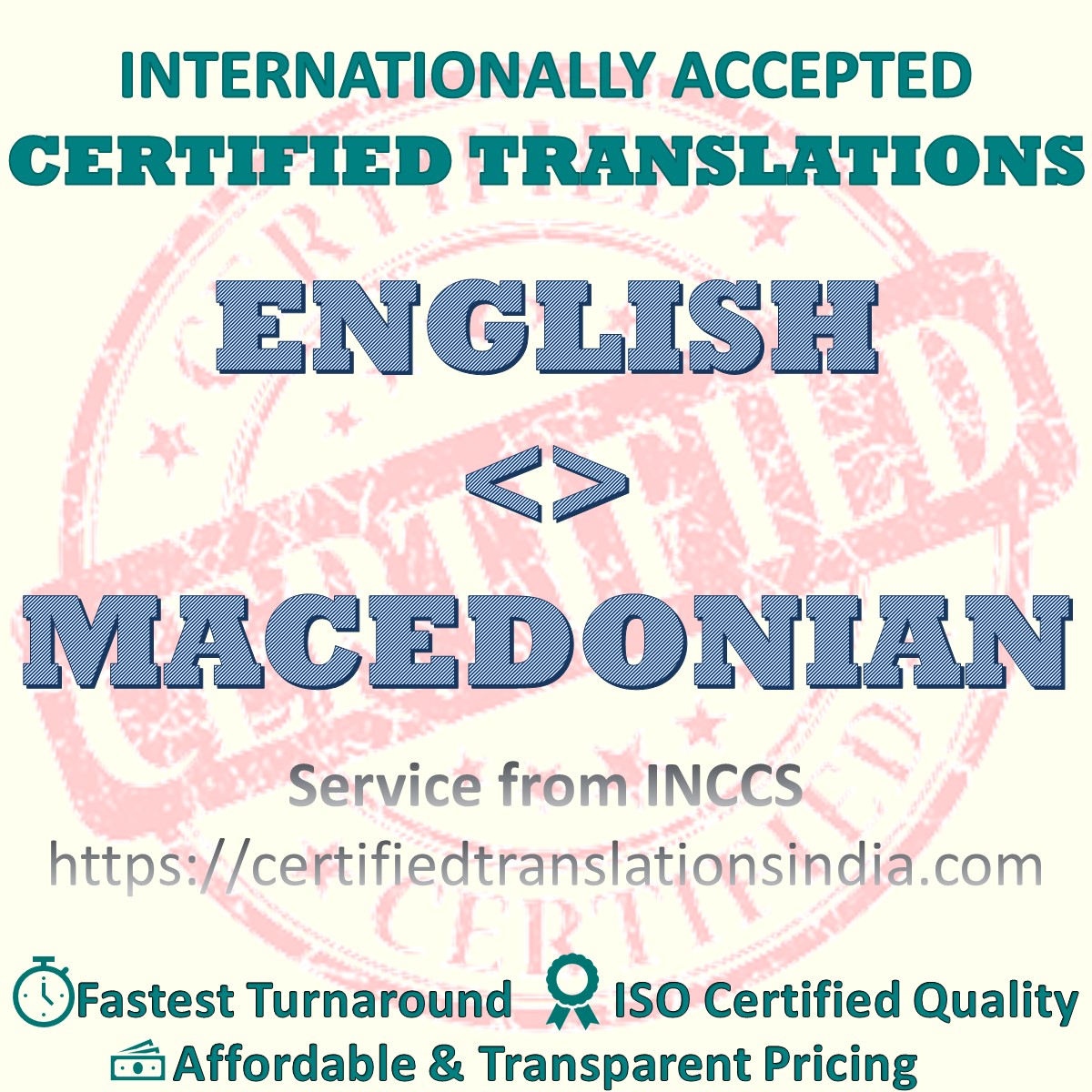Embark on a linguistic journey with English to Macedonian language translation, where words bridge cultural divides and empower global connections. From facilitating cross-cultural understanding to driving business collaborations, the significance of this translation cannot be overstated.
This comprehensive guide delves into the intricacies of English to Macedonian translation, exploring its impact on cultural exchange, language learning, business communication, and technological advancements. Prepare to be enlightened as we uncover the complexities and rewards of this linguistic endeavor.
Language Translation
English to Macedonian translation is a significant endeavor due to the cultural and economic ties between the two countries. It plays a crucial role in fostering communication, understanding, and cooperation.Real-world scenarios where translation is crucial include:
- Business:Contracts, agreements, and marketing materials need accurate translation to ensure clarity and legal compliance.
- Government:Official documents, diplomatic communications, and public announcements require precise translation for effective governance and international relations.
- Tourism:Travel guides, maps, and brochures need translation to enable visitors to navigate and appreciate the destination’s culture and attractions.
- Education:Textbooks, research papers, and academic materials require translation to facilitate knowledge exchange and promote cross-cultural understanding.
- Healthcare:Medical records, prescriptions, and patient information need translation to ensure proper diagnosis, treatment, and informed consent.
Translating between English and Macedonian poses challenges due to differences in grammar, vocabulary, and cultural context. Translators must be skilled in both languages and have a deep understanding of the nuances and idioms of each.
Cultural Exchange and Understanding

Language translation plays a pivotal role in facilitating cultural exchange by bridging communication barriers and enabling people from different linguistic backgrounds to engage in meaningful interactions. Through translation, cultural artifacts, ideas, and perspectives can be shared and disseminated, fostering a deeper understanding and appreciation of diverse cultures.
One of the primary ways translation facilitates cultural exchange is by enabling the exchange of literature, art, and other forms of creative expression. Translated works allow people to access and experience cultural products that would otherwise be inaccessible to them due to language barriers.
This exposure to different artistic traditions and perspectives broadens horizons, cultivates empathy, and promotes a sense of global interconnectedness.
Specific Examples of Cultural Artifacts and Events Translated to Foster Cross-Cultural Connections
- The translation of literary classics, such as “One Hundred Years of Solitude” by Gabriel García Márquez, has introduced readers worldwide to the rich literary traditions of Latin America.
- Subtitled films and television shows have made foreign cinema and storytelling accessible to global audiences, showcasing diverse perspectives and cultural experiences.
- Translated historical documents and cultural artifacts provide insights into the past and present of different societies, fostering a greater understanding of global history and cultural heritage.
Language Learning and Education
English to Macedonian translation plays a crucial role in language learning, enhancing vocabulary, grammar skills, and overall language proficiency.Translation exercises provide learners with the opportunity to:
- Compare and contrast structures and expressions in both languages, deepening their understanding of grammar.
- Expand their vocabulary by encountering new words and phrases in context.
- Improve their writing skills by translating complex ideas and structures.
- Develop critical thinking skills by analyzing and interpreting texts in both languages.
Use of Translation Tools and Resources
In educational settings, translation tools and resources can greatly enhance language learning. Online dictionaries, translation software, and language learning apps provide learners with instant access to accurate translations and contextual examples. These tools can be used to:
- Supplement classroom instruction and provide additional practice.
- Support independent study and self-paced learning.
- Facilitate communication between learners and native speakers.
li>Create personalized learning experiences tailored to individual needs and interests.
By incorporating translation into language learning and education, educators and learners can unlock a wealth of benefits that contribute to improved language proficiency and cross-cultural understanding.
Business and Communication

Translation plays a pivotal role in international business and communication, enabling companies to transcend language barriers and expand their global reach. Effective translation facilitates seamless cross-border trade, collaboration, and customer outreach, driving economic growth and fostering intercultural understanding.
Global Trade and Collaboration
Translation is essential for international trade, enabling businesses to communicate effectively with customers, partners, and suppliers from diverse linguistic backgrounds. Accurate and culturally appropriate translations of contracts, invoices, and marketing materials ensure clear understanding and reduce misunderstandings, facilitating smooth business transactions and fostering global collaboration.
Cross-border Marketing and Customer Outreach
In today’s globalized marketplace, translation is crucial for cross-border marketing and customer outreach. Translating marketing campaigns, product descriptions, and customer support materials into local languages allows businesses to engage with target audiences effectively, building brand awareness, generating leads, and driving sales.
Effective translation helps businesses connect with customers on an emotional level, fostering trust and loyalty.
Technology and Translation: English To Macedonian Language
Technological advancements have significantly impacted the field of language translation, particularly in the area of English to Macedonian translation. The advent of machine translation (MT) tools, powered by artificial intelligence (AI), has revolutionized the translation process, offering both benefits and limitations.
Machine Translation and its Impact
MT tools leverage advanced algorithms and massive language datasets to translate text automatically. This has led to increased efficiency, reduced costs, and faster turnaround times for translation projects. Additionally, MT tools can handle large volumes of text, making them suitable for tasks such as website localization and document translation.
Benefits of AI-Powered Translation Tools
- Increased efficiency: MT tools automate the translation process, eliminating the need for manual translation, which saves time and resources.
- Reduced costs: MT tools are generally more cost-effective than human translators, making translation services more accessible to businesses and individuals.
- Faster turnaround times: MT tools can translate large volumes of text quickly, enabling faster delivery of translated content.
Limitations of AI-Powered Translation Tools
- Quality issues: While MT tools have improved significantly, they still face challenges in accurately capturing the nuances and context of human language, which can lead to errors and inaccuracies in translation.
- Lack of creativity: MT tools are unable to produce creative or literary translations, which require human judgment and interpretation.
- Domain-specific limitations: MT tools may struggle to translate specialized or technical texts that require domain-specific knowledge.
Future Prospects of Technology in Language Translation
The future of technology in language translation holds promising prospects. Ongoing advancements in AI and natural language processing (NLP) are expected to further improve the accuracy and quality of MT tools. Additionally, the integration of AI with human translators is likely to create hybrid translation models that combine the strengths of both approaches.
Resources and Tools
English to Macedonian translation has become increasingly accessible thanks to a range of resources and tools. These tools can assist learners, professionals, and anyone who needs to translate between the two languages.To help you navigate the available options, we have compiled a comprehensive list of resources organized into categories:
Online Dictionaries
Online dictionaries provide quick and easy access to word translations. Some popular options include:
Google Translate
A well-known online dictionary with a vast database of words and phrases. It offers instant translations and supports multiple languages.
Oxford Learner’s Dictionaries
A reliable source for English definitions and translations. It provides clear explanations and example sentences.
Macedonian Dictionary
A comprehensive Macedonian dictionary with detailed definitions and usage examples.
Translation Software, English to macedonian language
Translation software offers more advanced features for larger or complex translation tasks. Here are a few notable options:
DeepL Translator
A powerful translation tool known for its accurate and fluent translations. It supports multiple languages, including English and Macedonian.
SDL Trados
A professional-grade translation software used by language service providers. It offers a range of features, including machine translation, terminology management, and quality assurance.
Memsource
A cloud-based translation platform that combines machine translation with human post-editing. It provides collaboration tools and project management features.
Language Learning Apps
Language learning apps can be helpful for improving your Macedonian vocabulary and grammar. Consider the following apps:
Duolingo
A popular language learning app that offers interactive lessons and gamified exercises. It includes a Macedonian course for English speakers.
Babbel
Another well-regarded language learning app that provides structured lessons and personalized feedback. It also offers a Macedonian course.
Rosetta Stone
A comprehensive language learning software that uses immersion techniques and speech recognition technology. It includes a Macedonian course for English speakers.
Translation Styles and Techniques

Translating from English to Macedonian involves various styles and techniques, each with its advantages and disadvantages. The choice of style depends on the context, purpose, and desired outcome of the translation.
Literal Translation
Literal translation aims to render the original text word-for-word, preserving its grammatical structure and vocabulary. This style is often used for legal, technical, and scientific documents, where accuracy is paramount.
- Advantages:Ensures precision and fidelity to the original text.
- Disadvantages:Can result in unnatural or awkward phrasing in the target language.
Free Translation
Free translation prioritizes readability and naturalness in the target language. It involves paraphrasing, restructuring, and adapting the original text to suit the cultural and linguistic norms of the target audience.
- Advantages:Produces a fluent and easy-to-understand text.
- Disadvantages:May deviate significantly from the original meaning.
Idiomatic Translation
Idiomatic translation focuses on conveying the meaning and intent of the original text by using idiomatic expressions and culturally appropriate language. This style is commonly used in literary works, marketing materials, and colloquial speech.
- Advantages:Captures the nuances and cultural context of the original text.
- Disadvantages:Can be challenging to translate effectively and may not always convey the exact meaning.
Case Studies and Examples
To further illustrate the significance of English to Macedonian translation, we will delve into real-world examples and case studies that showcase successful translation projects.
These case studies will highlight the challenges encountered during the translation process and the innovative solutions implemented to overcome them. Furthermore, we will analyze the impact of translation on the target audience and the overall project outcomes.
Case Study: Translating a Legal Document
In one instance, a law firm needed to translate a complex legal document from English to Macedonian for a client who was involved in an international business transaction.
The challenge lay in ensuring that the translation accurately conveyed the legal nuances and terminology, while maintaining the integrity of the original document.
The solution involved collaboration between legal experts and experienced translators, who worked together to create a translation that was both legally sound and culturally appropriate.
The impact of the translation was significant, as it enabled the client to effectively participate in the business transaction and safeguard their legal interests.
Closing Summary
In conclusion, English to Macedonian language translation stands as a cornerstone of global communication, fostering cultural exchange, enhancing education, empowering businesses, and driving technological progress. By embracing the nuances of both languages, we unlock a world of opportunities and understanding, bridging linguistic barriers and enriching our collective experiences.
Popular Questions
What are the key challenges in translating from English to Macedonian?
English and Macedonian belong to different language families, resulting in distinct grammatical structures and vocabulary. Translators must navigate these differences while preserving the original meaning and cultural context.
How can English to Macedonian translation enhance cultural exchange?
Translation plays a vital role in breaking down language barriers, allowing people from different cultures to share ideas, stories, and perspectives. It fosters mutual understanding and appreciation.
What role does translation play in language learning?
Translating between English and Macedonian helps learners expand their vocabulary, improve grammar, and gain insights into the nuances of both languages.
How has technology impacted English to Macedonian translation?
Machine translation tools have revolutionized the field, providing fast and accessible translations. However, human translators remain essential for ensuring accuracy and cultural sensitivity.